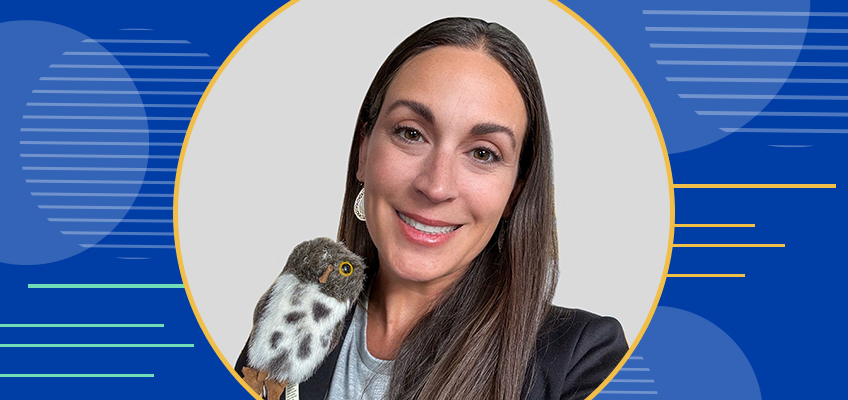
One of the things that makes our talented team of Literacy Specialists and Literacy Advisors so effective in supporting teachers is that they’ve been in your shoes. Together, this dedicated group of coaches and implementation experts brings more than a century of classroom experience to the role, each with a unique story to share. We recently caught up with New Jersey-based Literacy Specialist Rachael Burg to learn more about her journey, her commitment to “literacy for all,” and what inspires her in her work with teachers and students alike.
I taught in a public school district for 17 years, working in a variety of roles including special education teacher, sixth grade classroom teacher, inclusion facilitator, and learning coach focused on literacy and inclusive practices. I earned my master’s in reading with a reading specialist certification and then became a Wilson Reading System® (WRS) Level I Certified Teacher. WRS changed both my students’ lives and mine.
I support the “Boots on the Ground”—the dedicated educators who work with students daily. By sharing my literacy knowledge and collaborating with these teachers, I help empower them to change their students’ lives. Empowering teachers and reminding them that their work every day is crucial to helping all students achieve literacy success is by far the most rewarding part of my job.
Seeing student growth and progress! Watching teachers celebrate that by the end of the year, the majority of their students are reading proficiently. Not just some—most of the class! One experience in particular stands out. I was working with an inclusive first grade class and witnessed a student who had started the year with limited language stand up to lead the class during a Drill Sounds/Warm-Up. His language and communication were clear and precise—an incredible transformation!
Wilson works because it equips educators with not only the knowledge of WHAT to teach but also HOW to teach it using a Structured Literacy approach that benefits all students. Wilson programs allow teachers to be diagnostic and prescriptive, tailor lessons to meet individual students’ needs, and provide numerous multimodal learning opportunities.
Encouraging students’ metacognitive thinking, along with the structured, developmentally appropriate design of Wilson’s programs, are key to improving literacy skills. Teachers often rave about how Wilson programs consistently support skill mastery, enabling students to apply what they’ve learned across academic areas. Many say that it’s the first program that truly teaches students how to read and spell, and they look forward to this time each day just as much as their students do!
Top resources include the Fundations® Activity Cue Cards, which are invaluable for guiding teachers on how to deliver lessons efficiently and effectively, and the magnetic Fundations Letter Boards, favorites for targeted practice once students become comfortable using them.
The Targeted Instruction Resources in the Learning Community are great for supporting struggling students in small groups. These students need more—more instruction, more practice, and more repetition focused on specific trouble spots. If they don’t see a reading specialist, make time in small groups to review and reteach skills, focusing on what they’re still mastering.
Teacher planning and preparation. Reading the lesson and making a plan are essential. At first, it may take more time, but soon it becomes second nature, and the lessons become impactful. It will all be worth it when you see the lightbulb go off in a student’s eyes, a big smile appear on their face, or their newfound excitement to learn because they realize they can do it.
The Goosebumps series by R.L. Stine, especially One Day at Horrorland. As a struggling reader, they were the only books where I could both figure out the words and follow the story.
A teacher! A wise college counselor steered me toward special education, which turned out to be my niche.
The Pigeon from Mo Willems’ books—they always make me laugh!